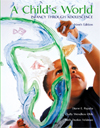Box 1-1 The Social World - Studying the Life Course: Growing up in Hard Times. [seep. 14 of your text] After you read the above named box in your text, and the accompanying "Check
it out!" question, go to http://www.sos.state.mi.us/history/museum/techstuf/depressn/teacu
p.html for Reminiscences of the Great Depression, originally published in Michigan History Magazine, January-February, 1982 (Vol. 66, No. 1). Read one of the oral histories at this Web site and consider how the Great Depression seems to have affected the person whose story is told. Box 1-2 The Research World -Is There a Critical Period for Language
Acquisition? [see p. 15 of your text] After you read the above named box in your text, and the accompanying "Check
it out!" question, go to http://www.facstaff.bucknell.edu/rbeard/acquisition.html This is a Web site developed by Professor Robert Beard, Linguistics Program at Bucknell University. The page at this URL gives a brief, accurate overview of the nature-nurture question as it concerns language acquisition and also offers links to other related sites of interest. Historic Views Of Childhood According to the French historian Philippe Ariès (1962), http://www.staff.ncl.ac.uk/les.gofton/arie-sum.htm
until the seventeenth century children in western societies were thought of
as miniature adults--just smaller, weaker, and less intelligent. Ariès
based his opinion on old paintings that show children dressed like their elders
and documents that describe children working long hours, leaving their parents
at early ages for apprenticeships, and suffering brutality at the hands of adults. However, other scholars, relying on different and earlier sources, maintain
that children have always been viewed as a special class of people. The psychologist
David Elkind (1986)
http://teach.fhu.edu/technology/PS Y306/elkind.html
found recognition of children's special nature in the Bible and in the works
of the ancient Greeks and Romans. And, after examining more than 400 autobiographies,
diaries, and other sources close to the actual day-to-day experience of family
life, Linda A. Pollock (1983) makes a strong argument that, at least as far
back as the sixteenth century, children have been seen and treated differently
from adults. Diaries of both parents and children portrayed parents who loved
their children and saw them as playful beings in need of guidance, care, and
protection. Parent-child relationships were not described as formal or
distant, and there was little evidence of harsh discipline or abuse. Most parents
wanted their children and enjoyed their company, were concerned about such issues
as weaning and teething, and suffered when children fell ill or died. Parents
regarded child rearing as one of the most important challenges in life. Even
Puritan childrearing in New England--widely believed to have been harsh and
repressive, influenced by the Christian doctrine that children are born with
original sin and a "natural pride" that must be broken--seems to have been more
complex than that. There is evidence that Puritan parents loved and protected
their children (Moran & Vinovskis). Still, Aries's main contribution was the recognition that the meaning of childhood, like other stages of life, is subject to historical change. This understanding underlies the study of child development. | 


 2002 McGraw-Hill Higher Education
2002 McGraw-Hill Higher Education